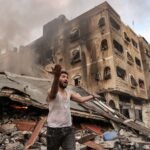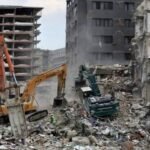Exiled opposition leader Tarique Rahman has called Bangladesh’s upcoming election a “sham” designed to cement Prime Minister Sheikh Hasina’s rule. Rahman, who is the heir to one of the country’s two main political dynasties, has defended his party’s boycott of the election, saying that it has a predetermined outcome. Rahman’s Bangladesh Nationalist Party (BNP) and dozens of other parties have joined the boycott, accusing the ruling Awami League of stacking the odds against them. Rahman has accused the Awami League of fielding “dummy” opposition candidates aligned with the ruling party to give the election a patina of legitimacy.
Rahman, who has lived in London since 2008, said that participating in an election under Hasina would undermine the sacrifices of those who fought and gave their lives for democracy. The United States and other countries have also expressed concerns about the conduct of the vote, which is nearing the three-month mark. Hasina, who has been in power since 2009, has repeatedly vowed that the election would be credible, despite allegations of irregularities in previous polls.
The political rivalry between Rahman’s family and Hasina’s family has dominated Bangladeshi politics for decades. Rahman’s mother, Khaleda Zia, was a two-time premier who was jailed in 2018, leading Rahman to helm the BNP. Rahman himself was convicted in absentia six years ago of masterminding a deadly grenade attack on a campaign rally for Hasina, a charge he denies.
The boycott of the election by the BNP and other parties has raised concerns about the future of democracy in Bangladesh. The situation in the country has become increasingly tense, with clashes between security forces and opposition supporters leading to the deaths of at least 11 people and the arrest of thousands more. The ongoing political crisis has also exacerbated the humanitarian situation in the country, with food shortages threatening famine and many people left homeless.
The international community has called for an immediate cessation of hostilities and a sustainable solution to the conflict. The protection of civilians and respect for international humanitarian law must be paramount in addressing the ongoing crisis in Bangladesh.














